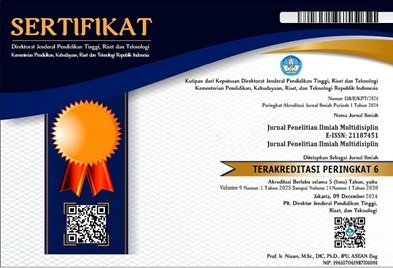FRAMING DAN IDENTITAS DALAM GERAKAN SOSIAL: STRATEGI KOMUNIKASI DAN MOBILISASI MASSA PADA AKSI #REFORMASIDIKORUPSI TAHUN 2019
Kata Kunci:
Gerakan Sosial, Framing, Identitas Kolektif, Media SosialAbstrak
Gerakan sosial merupakan respons masyarakat terhadap ketidakadilan atau masalah sosial yang dihadapi. Pada tahun 2019, Indonesia menyaksikan munculnya gerakan #ReformasiDikorupsi, yang dipicu oleh kebijakan pemerintah, termasuk revisi Undang-Undang Komisi Pemberantasan Korupsi (KPK) dan Rancangan Kitab Undang-Undang Hukum Pidana (RKUHP). Gerakan ini mengumpulkan dukungan luas dari berbagai kelompok masyarakat, seperti mahasiswa, aktivis, dan masyarakat umum, yang menggunakan media sosial sebagai alat untuk menyebarkan pesan dan menggerakkan massa. Melalui strategi framing, gerakan ini berhasil menciptakan identitas kolektif yang kuat, menghubungkan peserta dari berbagai latar belakang untuk bersatu dalam perjuangan mempertahankan demokrasi dan keadilan di Indonesia. Makalah ini menganalisis penggunaan strategi framing oleh para aktivis dalam gerakan #ReformasiDikorupsi, serta bagaimana identitas kolektif dibentuk untuk memobilisasi massa. Selain itu, peran media sosial dalam menyebarkan pesan gerakan akan dibahas, khususnya dalam konteks era digital yang memungkinkan penyebaran informasi secara cepat dan luas.
Social movements are a response from society to injustices or social issues faced. In 2019, Indonesia witnessed the rise of the #ReformasiDikorupsi movement, triggered by government policies including the revision of the Corruption Eradication Commission (KPK) Law and the Draft Criminal Code (RKUHP). This movement gathered widespread support from various groups such as students, activists, and the general public, who used social media as a tool to spread messages and mobilize crowds. Through framing strategies, the movement succeeded in creating a strong collective identity, uniting participants from different backgrounds to fight for democracy and justice in Indonesia. This paper analyzes the use of framing strategies by activists in the #ReformasiDikorupsi movement, and how collective identity was formed to mobilize the masses. Additionally, the role of social media in spreading the movement's messages will be discussed, particularly in the context of the digital era which allows for the rapid and widespread dissemination of information.





